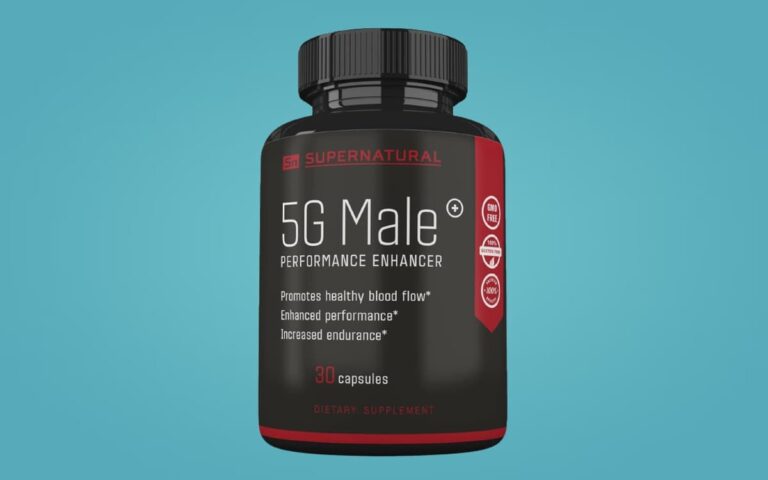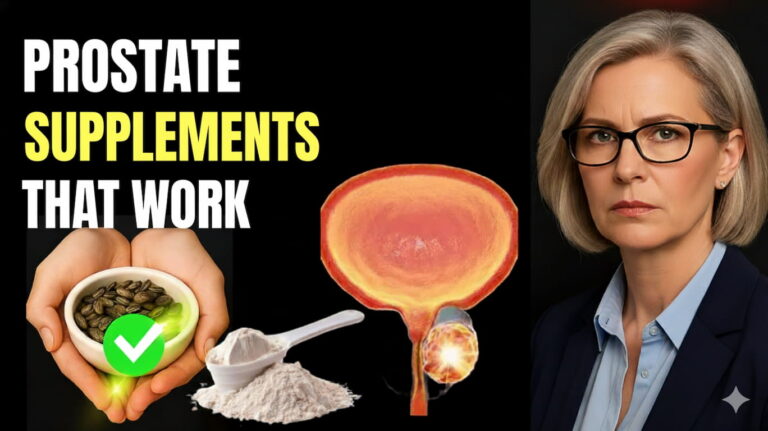Prostate Enlargement Symptoms – Latest Treatment, Medication that Shrink Enlarged Prostates
Most men will experience prostate enlargement symptoms at some point in their lives. In fact, prostate enlargement is the most common prostate problem affecting men over the age of 50. While prostate enlargement is not usually a serious condition, it can cause a lot of discomfort and inconvenience.
In this blog post, we will discuss signs of enlarged prostate, benign prostatic hyperplasia symptoms, what prostate enlargement is, its symptoms, and how it is treated.
prostate enlargement symptoms can vary from man to man. Some common symptoms of prostate enlargement include needing to urinate more often, difficulty starting or stopping urination, weak urine stream, and pain during urination.
In some cases, prostate enlargement may not cause any symptoms at all. If you are experiencing any of these symptoms, it is important to use the most effective treatment that works.
How Old Does Benign Prostate Growth Occur?
Benign prostate growth is a natural process that begins around the age of 25. At first, the prostate gland doubles in size. After that, it grows slowly for the next 25 years.
By the time a man reaches his 50s, his prostate may have tripled in size and result in prostate issues. However, not all men will experience prostate enlargement to this degree.
What Causes Prostate Enlargement?
The cause of prostate enlargement is not fully understood. However, it is thought to be related to changes in hormone levels. As men age, their bodies produce less of the male hormone testosterone.
At the same time, they begin to produce more of the female hormone estrogen. These hormonal changes may cause the prostate gland to grow larger.
How Is Prostate Enlargement Diagnosed?
Prostate enlargement is usually diagnosed with a digital rectal exam or prostate-specific antigen “PSA” test. During a digital rectal exam, the doctor inserts a gloved finger into the rectum and feels for any abnormalities in the prostate gland.
A PSA test measures the level of PSA in the blood. A high level of PSA in the blood may be a sign of prostate enlargement or cancer.
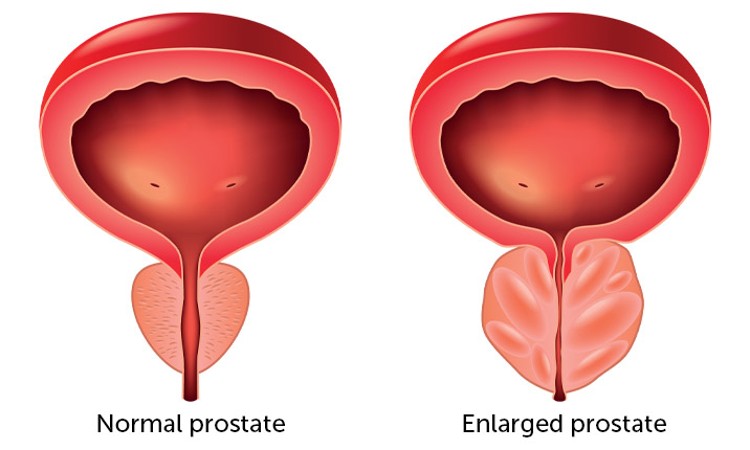
Prostate Enlargement Treatment
There are several treatment options available for prostate enlargement. The type of treatment will depend on the severity of the symptoms and how much they are affecting your quality of life.
In some cases, no treatment may be necessary. If the prostate enlargement is causing bothersome symptoms, there are a number of treatments that can help relieve them.

Some common prostate enlargement treatments include:
☘️ -Medications: There are several medications that can be used to treat prostate enlargement, including alpha-blockers and finasteride. Alpha-blockers work by relaxing the muscles around the prostate gland, which makes urination easier. Finasteride works by reducing the size of the prostate gland.
☘️ -Surgery: In some cases, surgery may be necessary to remove part of the prostate gland. This procedure is called a transurethral resection of the prostate (TURP).
☘️ -Lifestyle changes: Making lifestyle changes can also help relieve symptoms of prostate enlargement or swollen prostate symptoms. These changes include avoiding caffeinated and alcoholic beverages and limiting how much time you spend sitting during the day.
Prostate enlargement is a common condition that affects many men as they age. While it is not usually serious, it can cause a lot of discomforts.
If you are experiencing any prostate enlargement symptoms, it is important to see a doctor for diagnosis and treatment. There are many treatment options available that can help relieve the symptoms of prostate enlargement.
There are many different treatment options available for prostate enlargement. The most common and least invasive treatment option is medication.
There are several different types of medications that can be used to treat prostate enlargement, depending on the severity of the condition. In some cases, surgery may be necessary to remove part or all of the prostate gland.
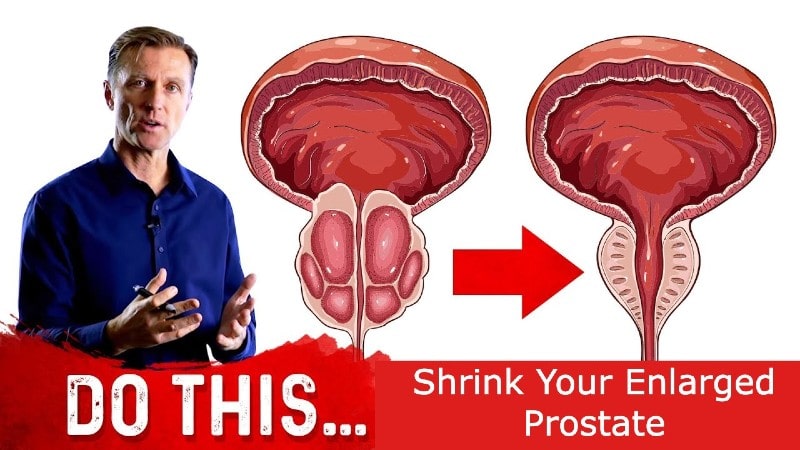
The good news is that there are many remedies for an swollen prostate symptoms, and most men respond well to treatment.
In addition, there are several things you can do to help prevent prostate enlargement from occurring in the first place.
We suggest trying one or more of the 5 best prostate supplements to keep your prostate healthy and functioning properly.
What Are The Symptoms Of Benign Prostate Enlargement?
Prostate enlargement is also called benign prostatic hyperplasia (BPH). It is not cancerous and does not increase your risk for prostate cancer. BPH occurs when there is an overgrowth of prostate cells.
This can cause the prostate to become enlarged and can put pressure on the urethra, which runs through the center of the prostate. This pressure can make urinating difficult or uncomfortable.
Symptoms of prostate enlargement may include:
☘️ – A weak or interrupted urinary stream
☘️ – A feeling that you need to urinate more often
☘️ – A feeling that you need to urinate more urgently
☘️ – Difficulty starting urination
☘️ – Difficulty emptying your bladder completely
☘️ – Dribbling after urinating
☘️ – Sudden urges to urinate
If you are experiencing any of these symptoms, talk to your doctor. They may be able to recommend treatment options that can help relieve your symptoms and shrink prostate. prostate enlargement is a common condition, and there are many effective treatments available.
Don’t hesitate to ask for help if you’re having trouble with prostate enlargement. Left untreated, swollen prostate symptoms, prostate enlargement can lead to serious health problems such as urinary tract infections or kidney damage.
Early diagnosis and treatment can help prevent these complications. prostate enlargement is not a death sentence, and you can live a full and healthy life with this condition.
There’s no need to suffer in silence. Get the best treatment options for prostate enlargement.
Do Genetic Factors And Nutrition Have An Effect?
Although the main cause of benign prostate enlargement is not known precisely, the disruption of hormonal balance due to the advancement of age and the activation of growth factors is among the most responsible reasons.
In addition, as in most diseases, genetic factors are important in prostate enlargement. It is seen at least twice as often in those with BPH in their family.
While a healthy diet cannot completely prevent prostate disease, it can play an important role in its development and progression. Some studies have shown that certain nutrients may help to reduce the risk or progression of prostate enlargement.
These include lycopene, selenium, and vitamin E. Other nutrients such as zinc and omega-three fatty acids may also have a role in prostate health but more research is needed to confirm this.
Also Read: The Prostate Protocol Review – Does it Work, Get the facts Before you buy!
What Is The Treatment Of Benign Prostate Enlargement?
The main thing in prostate enlargement is whether the growing prostate affects the discharge of urine from the bladder.
Here, there is no direct relationship between the size of the prostate and the severity of the disease. When the urine output is not good, the structure of the urinary bladder first deteriorates, then the kidneys may be affected, causing kidney failure and even dialysis.
Therefore, early diagnosis and treatment are essential to improve prognosis and quality of life. The most common symptom is urinary frequency or urgency. There may also be hesitancy in urination, weak stream or dribbling at end of micturition.
There are many effective treatments for benign prostate enlargement, including:
???? -Alpha-blockers: These relax prostate smooth muscle and improve urine flow by allowing the bladder to empty more effectively. They are generally well tolerated with few side effects.
???? -Finasteride and dutasteride: These reduce the prostate size by inhibiting the production of dihydrotestosterone, a hormone that stimulates prostate growth. They can take up to six months to be effective and may cause sexual side effects such as decreased libido, erectile dysfunction, and ejaculatory dysfunction.
???? -Prostatectomy: This is surgery to remove the prostate gland. It is usually only considered for men who have failed to respond to other treatments or who have very severe symptoms.
If you are experiencing any of the above symptoms, please see your doctor for further assessment and treatment. Early intervention can make a big difference to the long-term outcome.
What are the warning signs of an enlarged prostate?
If you have any of the following prostate enlargement symptoms, it’s important to see your doctor right away:
❌ – Difficulty urinating
❌ – A weak or interrupted urinary stream
❌ – Urinary urgency or frequency (a strong need to urinate more often, even during the night)
❌ – Painful or burning urination
❌ – Blood in urine
❌ – Erectile dysfunction (trouble getting or maintaining an erection)
❌ – Chronic pelvic pain.
prostate enlargement can cause urinary problems because the prostate gland surrounds the urethra, the tube that drains urine from the bladder. When the prostate enlarges, it can squeeze or partially block the urethra.
This may slow or interrupt urine flow and cause urinary retention, or the inability to empty the bladder completely. prostate enlargement can also cause bladder, urinary tract or kidney problems.
If you have any of these prostate enlargement symptoms, don’t hesitate to see your doctor. Early diagnosis and treatment can help relieve symptoms and prevent complications.
Treatment options for prostate enlargement include the best 5 medications for enlarged prostate, minimally invasive procedures, and surgery. In some cases, no treatment is necessary.
Your doctor will likely start with conservative measures and only recommend more aggressive treatment if other measures fail to relieve your symptoms or if you develop complications.
How To Shrink His Enlarged Prostates – Do This Trick For Breakfast, Save Your Prostate! VIDEO
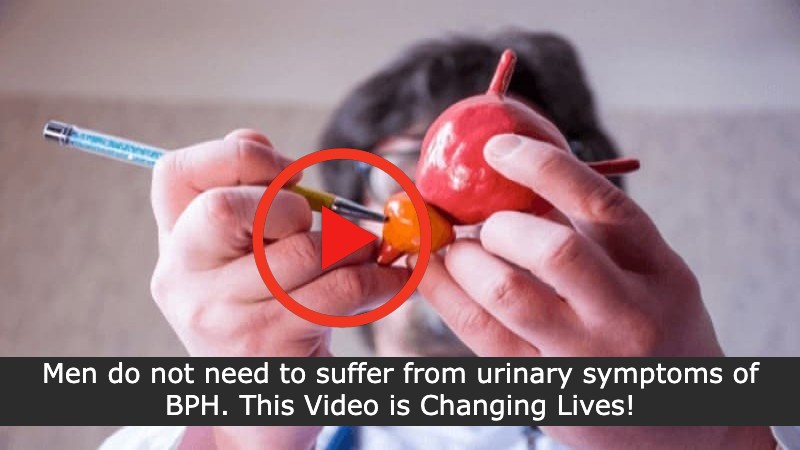
What Happens When The Prostate Enlarges?
As men get older, it is not uncommon for the prostate gland to enlarge. This condition is known as benign prostatic hyperplasia (BPH). While an enlarged prostate gland may cause uncomfortable and painful urinary symptoms, it is important to note that BPH is not cancerous.
Symptoms of an enlarged prostate gland can include:
❎ – Difficulty urinating
❎ – A weak or interrupted urine stream
❎ – Frequent urination, especially at night
❎ – Blood in the urine
❎ – Urinary tract infections
If you are experiencing any of these symptoms, it is important to speak with your doctor. They will be able to determine if your symptoms are caused by a prostate enlargement or another medical condition.
What Are Nutrition Tips for Prostate Enlargement?

If you’re looking to improve your prostate health, nutrition is a great place to start. Eating a healthy diet and getting the right nutrients can help reduce your risk of prostate enlargement. Here are some specific nutritional tips to keep in mind:
✅ – Get plenty of fiber. Fiber helps keep the digestive system running smoothly, which can reduce the likelihood of prostate problems. Foods high in fiber include fruits, vegetables, whole grains, and beans.
✅ – Eat more tomatoes. Tomatoes are a rich source of lycopene, an antioxidant that has been linked with reduced prostate cancer risk. Lycopene is also found in other red and pink fruits and vegetables like watermelon and pink grapefruit.
Also Read: The Prostate Protocol Review – Does it Work, Get the facts Before you buy!
Conclusion on
The prostate is a small, walnut-sized gland located in front of the rectum. It surrounds the urethra, the tube that carries urine and semen out of the body. The prostate helps produce semen.
As men age, their prostates often enlarge. This can cause problems such as urinary frequency and urgency, leaking after urination (incontinence), difficulty starting or stopping urination (hesitancy), and a slow stream of urine.
If you are experiencing any of these symptoms, get checked for prostate enlargement. There are treatments available that can help lessen your symptoms and improve your quality of life. If you would like more information on prostate enlargement or want
If you are experiencing any of the prostate enlargement symptoms prostate issues, it is important to see a doctor and begin treatment.
The good news is that many treatments are available taht help shrink prostate, and most men can find relief from their symptoms. In addition, there are steps you can take to help prevent prostate enlargement or slow its progression.
One such step is taking a prostate supplement. We’ve rounded up 5 of the best supplements for prostate health, so try them out and see if they make a difference in your symptoms.

